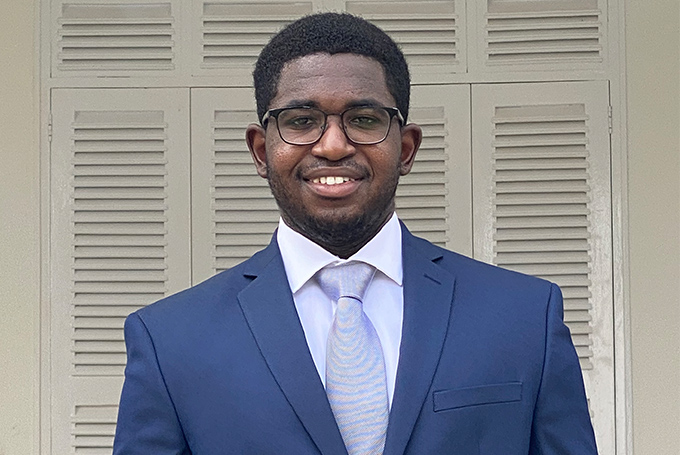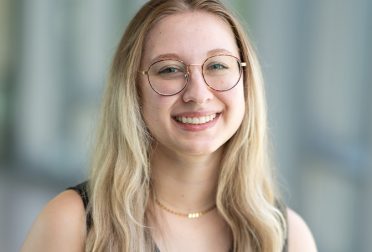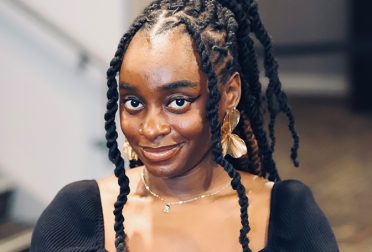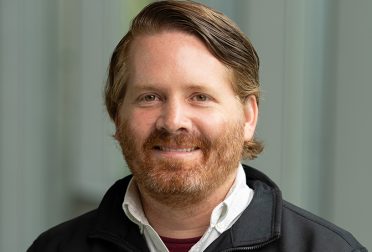Evans Adusei comes to SDM with several careers already under his belt. He founded a consulting firm that designs public sector solutions, then worked at Apple as an engineering project manager. He also founded the nonprofit Hello World Inc. to support technology education in Ghana. With this experience, he’s looking forward to learning about navigating cultural differences from Dr. Bryan Moser. “We went through five different iterations of a system, and culture played a huge part in our design,” Evans said. “I saw that as a gap in my knowledge base. How do you account for these different variables, designs, and dynamic issues?”
How did you hear about SDM?
About a year ago, I decided that I wanted to expand my horizons. I came upon the MIT SDM program in my research. I worked at Apple at that time in project management and engineering. I was still coding, but I was also managing, and that’s exactly what SDM does. I love the concept of bridging the gap between management and technology.
What was your career like before joining the program?
Back in 2019 I started my own company. We design public sector solutions. For our first project, I designed a petroleum system which allowed the government to track and monitor all of the fuel coming in from the port. Previously they didn’t have any way to check the amount of fuels that were coming in, or the taxes that were meant to be paid, except what the private companies would give them. We essentially digitized the entire process and created a platform where all the data could be collected and aggregated.
I worked on that until I joined Apple as an engineering project manager for the Global Network Services organization. At Apple I built a lot of systems that improved the productivity of our workflows. I really enjoyed my time there. Now I’m focusing on my own company again after getting that experience at Apple, which I really valued. I’m taking the things I’ve learned and pressing in this new direction. I also have a nonprofit in Ghana. We’ve been donating computers to local schools. And we’re building a school in Ghana where kids can learn how to code and learn about different technologies like artificial intelligence and mechanical engineering. Ghana is a very dynamic place, and thankfully, I have a great family who gave me advice on how to move the foundation in the right direction.
How will a systems approach help you in your work?
Systems design is almost all I do now. I’m a strong believer that every problem has a solution. And I feel like here, in the States, no matter how difficult the problem is, there’s usually a way out, and it’s a straighter road. But I’m realizing a lot of the problems that my clients have are dynamic and never follow a straight path. Systems thinking is a good way to approach problems. It allows a more dynamic approach to creating technologies or systems that are much more fluid in their ability to handle different cases. How do you create systems that are adaptable indifferent situations? And how do they hold up in those different environments? That’s intriguing.
Beyond the core class, what other courses or areas are you interested in?
I’m focusing on AI and then pivoting to mechanical engineering. I’ve always been on the software side, so mechanical engineering and robotics and things like that are really intriguing to me. Right now, part of my job from a management perspective is identifying vendors that can put those two pieces together. Bridging that gap between programming on hardware using software. I’m very interested in understanding how the two work together, how one affects the other. And then some out-there subjects like quantum computing, which I’ve not even touched, but sounds very interesting.
What’s something that excites you about meeting your new classmates?
The diversity. Where you’re from really dictates how you think in some ways, especially how you approach things. Being from Ghana and living in America has given me a broader perspective. I believe that my Ghanaian background combined with my experience in the U.S. helps me approach situations with a more open mind. I’ve been able to look at the good in both and use that perspective in my life. Everyone comes from different backgrounds and institutions, different places of work, different countries. If I’m talking to one classmate and hearing their perspective, then talking to another classmate, they probably have an entirely different perspective. And then being humble enough to sit down and listen to everybody, appreciating the diversity of perspectives and valuing the unique input from each person, and understanding how people approach problems from a different cultural perspective is very important.




